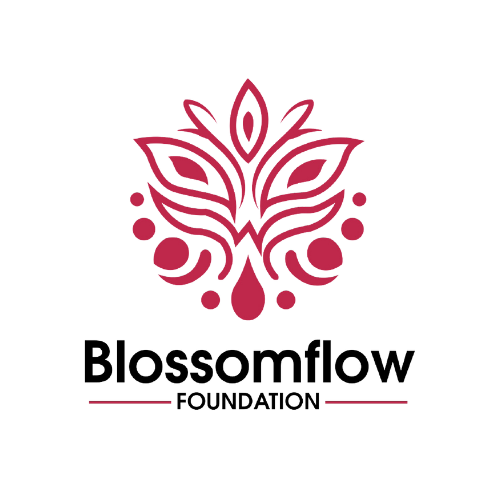
Period Health Across the Globe: How Different Cultures Approach Menstruation
Menstruation is something all women experience, yet it’s treated in vastly different ways across the globe. From being celebrated as a sacred rite to being hidden in shameful silence, there are many cultural perspectives on Menstruation . Despite these differences, one thing remains true: menstruation connects women worldwide, no matter where they are or how they experience it.
Let’s take a closer look at how different cultures approach menstruation, the unique challenges women face, and how we can foster a sense of global unity when it comes to period health.
1. The Sacredness of Menstruation: Cultural Perspectives on Menstruation
Cultural perspectives on menstruation vary widely across the world, each offering a unique understanding of the menstrual cycle’s significance. In some Indigenous cultures, menstruation is seen as a time of spiritual power. Rather than something to be hidden or ashamed of, it’s honored and respected. For example, in many Native American communities, there are different cultural perspectives on menstruation as menstruating women are considered to be more spiritually in tune, often taking time for solitude and reflection during their “moon time.”
This practice isn’t about exclusion; it’s about honoring the spiritual and physical energy women carry during this time. In many African cultures, a girl’s first period is celebrated with rites of passage, marking her transition into womanhood. These customs show us that menstruation can be a powerful and sacred part of life — not a taboo. By embracing different cultural perspectives on menstruation, we can challenge harmful taboos and encourage a more positive and empowering dialogue about menstruation in society.
When we explore cultural perspectives on menstruation, it becomes clear that these practices not only recognize the biological aspects of the cycle but also celebrate the deep connection between women and the cycles of life. Embracing cultural perspectives on menstruation can help dismantle the stigma surrounding periods, fostering a greater sense of understanding and respect for women’s experiences globally. This broader perspective can inspire a shift toward honoring menstruation as a sacred and powerful part of life.
2.The Struggle of Silence: Menstruation in South Asia
On the flip side, in some parts of South Asia, menstruation is a source of secrecy and stigma. In countries like India, Nepal, and Bangladesh, the cultural perspective on menstruation often portrays menstruating women as “unclean,” leading to restrictions on where they can go, who they can talk to, and what they can do.
In Nepal, there are entirely different cultural perspectives on menstruation. For example, the Chaupadi tradition forces women to isolate themselves in small sheds during their periods, often with limited access to food, water, or safety. Despite being banned, this practice still persists in remote areas, illustrating how deeply ingrained the stigma is.
In India, cultural perspectives on menstruation is different, many girls are taught to hide their periods, which leads to misinformation and poor menstrual hygiene. In a country where period poverty is rampant, millions of women and girls struggle to afford sanitary products, and many are forced to use unsafe alternatives.
3.Menstruation as a Celebration: Latin America’s Embrace of Menarche
In parts of Latin America, cultural perspectives on menstruation is different. Menstruation is treated much more openly — even with celebration! In Mexico, a girl’s first period is a cause for family celebration, with gatherings that include a ceremonial introduction to adulthood. La Menarca is a cultural milestone that’s often marked with family and friends, symbolizing the girl’s transition into womanhood.
Similarly, in parts of Central America, cultural perspectives on menstruation varies, menstruation is honored with rituals that are not only about physical changes but also emotional support, teaching young girls about the importance of self-care and healthy menstrual hygiene.
These practices remind us that menstruation doesn’t have to be a source of embarrassment or exclusion — it can be a moment of empowerment and pride.
4. Menstruation in Nigeria
In Nigeria, menstruation is often seen through a cultural lens that can vary significantly depending on the region, tribe, and community. Generally, menstruation is viewed as a natural and important aspect of life, but it is surrounded by various beliefs, taboos, and practices that reflect the country’s diverse cultural heritage.
- Cultural Beliefs and Taboos: In many Nigerian cultures, menstruation is considered a private and somewhat taboo subject. Some communities may discourage open discussion about menstruation, and menstruating women may be expected to adhere to certain behavioral norms, such as avoiding certain foods, activities, or interactions. For example, some people believe that menstruating women should not touch certain sacred objects or engage in specific religious rituals. These taboos are often tied to traditional beliefs around purity and spirituality.
- Access to Menstrual Products: In Nigeria, access to menstrual hygiene products can be limited, especially in rural areas. Many women and girls rely on alternatives such as cloth, which can be less hygienic and harder to manage compared to commercial menstrual products like pads or tampons. The cost of these products can also be a barrier for some women, making it challenging for them to maintain proper menstrual hygiene.
- Menstrual Education: In some regions of Nigeria, there is limited education about menstruation, which can lead to misconceptions and a lack of awareness among young girls. This lack of education often results in feelings of embarrassment and shame about menstruation. In recent years, various organizations and NGOs have been working to improve menstrual health education and break the stigma surrounding menstruation through school programs and awareness campaigns.
- Menstruation and Gender Inequality: Menstruation in Nigeria is often tied to broader issues of gender inequality. Girls who cannot afford menstrual products or miss school due to menstruation may experience interruptions in their education, which can impact their long-term prospects. Additionally, menstruation-related challenges can further marginalize women and girls in rural or economically disadvantaged areas.
- Rituals and Initiation: In some Nigerian cultures, the onset of menstruation is seen as a significant milestone in a girl’s life, marking the transition from childhood to womanhood. In some ethnic groups, there are initiation ceremonies or rituals to celebrate this milestone, often aimed at preparing the young girl for adulthood, including discussions on sexuality, marriage, and childbearing.
Despite the challenges, there has been growing advocacy for improving menstrual health and hygiene in Nigeria. This includes efforts to provide more accessible menstrual products, improve education about menstruation, and challenge harmful cultural taboos to ensure that women and girls can manage their menstruation with dignity and confidence.
5. The Changing Landscape: Menstruation in the West
In the West, the conversation around menstruation has come a long way in recent years. While silence and shame still linger in many spaces, there’s a growing movement to normalize menstruation and address period poverty.
The #PeriodPoverty movement has made waves in the United States and the UK, calling for free access to menstrual products in schools, prisons, and public spaces. Campaigns are pushing back against the idea that menstruation is something to hide or be ashamed of. There’s also a rise in sustainable, eco-friendly menstrual products like menstrual cups and organic cotton pads, making it easier for women to manage their periods safely and responsibly.
But even in more progressive countries, stigma can still linger, especially in the workplace, where menstruation is often seen as an uncomfortable topic. Breaking the silence around periods is a necessary step toward ensuring that women can menstruate without shame, regardless of their career or social setting.
6. Global Challenges: Menstrual Education and Health Access
One of the most pressing global issues surrounding menstruation is lack of access to menstrual hygiene products. In low-income countries, especially in regions like Sub-Saharan Africa and South Asia, millions of girls miss school because they don’t have access to sanitary products or safe facilities to manage their periods.
According to UNESCO, 1 in 10 girls in Sub-Saharan Africa misses’ school during her period because of period poverty. This leads to a cycle of inequality where girls are left behind in their education, unable to participate fully in school activities because of something as natural as menstruation.
But it’s not just an issue for low-income countries. Even in wealthier nations, period poverty is on the rise, affecting women who cannot afford menstrual products. In the UK, a study revealed that 1 in 4 women struggles to afford menstrual products. This highlights how the global menstruation crisis goes beyond geography and affects women everywhere.
7. Building Global Unity Through Menstruation Health
Despite the different cultural perspectives on menstruation, one thing is certain: menstruation connects women across the globe. It’s a shared experience, a reminder that we are all part of the same human journey. Whether you’re in a remote village in Nepal, a bustling city in Mexico, or a modern office in the West, menstruation is something every woman can relate to.
To improve menstrual health globally, we need to push for better education, access to menstrual products, and a breakdown of taboos that prevent open discussion. Programs like Tabeer Project in Kenya are already making a difference by distributing sanitary pads and providing education to girls in rural communities. Meanwhile, global initiatives like #FreePeriods are advocating for free menstrual products in schools and public spaces.
By joining forces and supporting menstrual health rights, we can create a world where no girl or woman is left behind because of her period.
Conclusion:
Menstruation Unites Us All
Menstruation is more than just a biological process; it’s a cultural touchstone that transcends borders and brings us together as women. Despite the different cultural perspectives on menstruation, whether celebrated, stigmatized, or something in between, menstruation is a universal experience that should be respected, discussed openly, and supported.
Let’s break the silence and celebrate menstruation as a powerful, natural, and necessary part of life. When we do, we can create a world where women everywhere have the resources, respect, and dignity to manage their periods with pride.
To learn more, Explore our Blog Section.
All Categories
Recent Posts
Why SDG 4 Cannot Be Achieved Without Ending Period Poverty
Tags
Give them a helping hand
Every donation fuels our mission to combat period poverty. Your generosity brings us closer to menstrual equity.
+234-909-482-1642
inquiries@blossomflow.org




